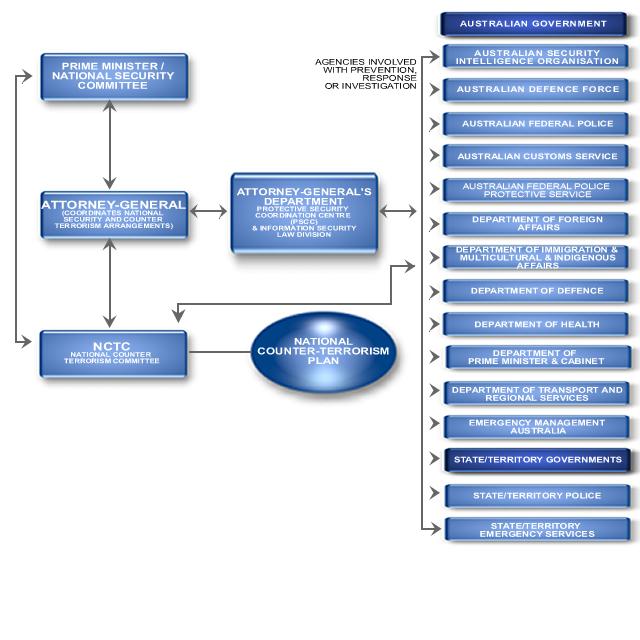National Security Agencies
24 May 2007
Following the 2001 attacks in the United States, the Australian Government extended its existing military, police and intelligence policy and organisational framework to incude a more comprehensive category of national security, focussing on counter-terrorism.
National Security Committee of Cabinet
“At the political level, the Prime Minister chairs the NSC, the focal point of decision making on national security. It considers strategic developments and major issues of medium- to long-term relevance to Australia’s national security interests. In a security crisis it would meet as often as needed.
The committee consists of the:
- Prime Minister
- Deputy Prime Minister and the Minister for Transport and Regional Services
- Treasurer
- Minister for Defence
- Minister for Foreign Affairs
- Attorney-General.
Other ministers are seconded to the NSC when specific issues relevant to their portfolios are being addressed. Senior officials also attend the meetings: the secretaries of the departments of the Prime Minister and Cabinet, Defence and Foreign Affairs and Trade, the Chief of the Defence Force and the directors-general of the Australian Security Intelligence Organisation and the Office of National Assessments. Other secretaries and the Commissioner of the Australian Federal Police may be called upon to attend, when needed.”
Australia’s National Security Agencies
Comprehensive Australian government website provides detailed information on the government’s counter-terrorism policies and agency relationships.

Diagram of the relationships between national security agencies and authorities,
Source: Attorney-General’s Department

